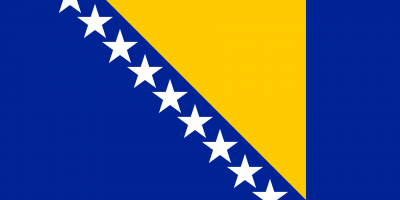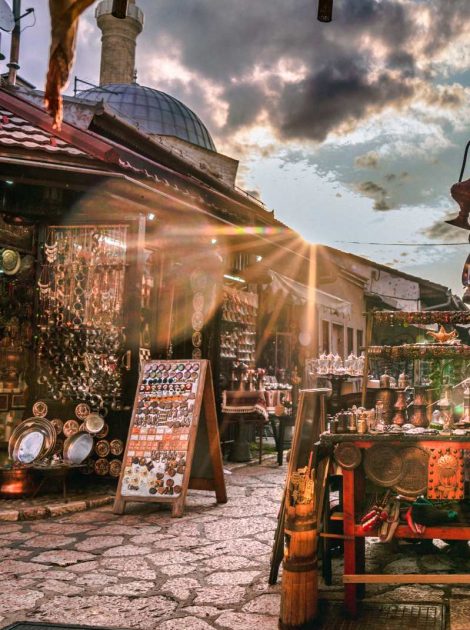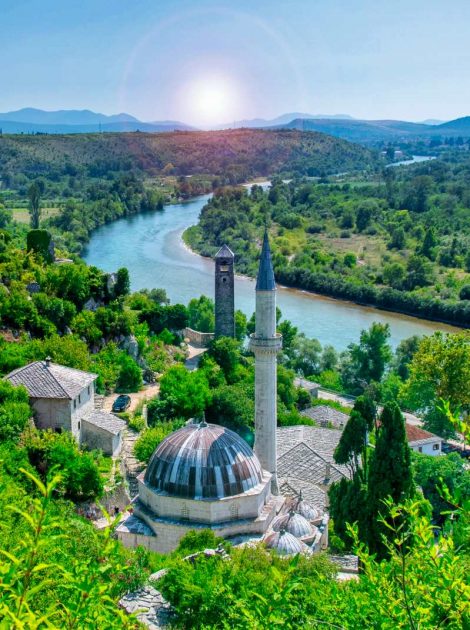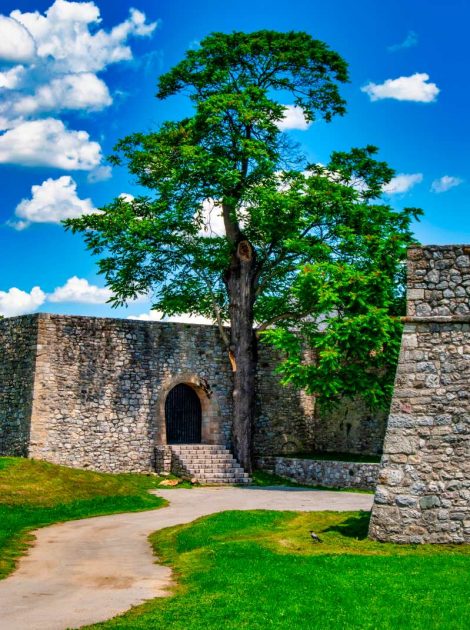County brief | |
|---|---|
 | |
Population |
3,53 Mio. |
Area |
51.000 km² |
Form of goverment |
Federal Republic |
Currency |
Convertible Mark (Euro) |
Capital |
Sarajevo |
Official languages |
Bosnian, Serbian, Croatian |
Religions |
Muslim, Roman Catholic, Serbian Orthodox |
Country code |
+387 |
National Holiday |
Varies depending on the federation |
Bosnia-Herzegovina is one of the most diverse countries in Southeastern Europe. This is mainly due to the fact that three ethnic groups, the Bosniaks, Croats and Serbs, form the state here. Unfortunately, tensions still exist in the state that was created in the course of the collapse of Yugoslavia. The bloody war in the 90s still lies like a shadow over the country and complicates a reconciliation of the ethnic groups, two of which (Croats and Serbs) in parts openly sympathize with a dissolution of the state and a connection to their respective protectorates.
However, the diversity and the wealth of traditions and customs is the real treasure of the country. The Croatian-influenced south is very different from the Serbian-influenced north of the country. The areas inhabited by Bosniaks are Muslim and thus form an exciting contrast to the Christian parts of the country. Here, where Orient and Occident meet, there is therefore a creative, often peaceful atmosphere, which is so unique in the region.
Bosnia-Herzegovina is particularly interesting for city travelers. Whether in Sarajevo or Mostar, the rich past of the region, which once lay in the no-man’s land between Austria and the Ottoman Empire and through which several important trade routes led, can be felt everywhere.
But the country’s nature also fascinates its visitors. Beautiful forests, rivers ideal for canoeing or rafting, and picturesque waterfalls and lakes characterize the country. And even if you only recognize it on the map when you take a closer look: Bosnia-Herzegovina even has a small access to the sea. At the coast, which is only about 10 km wide, you can even swim in the Adriatic Sea.
Come along on a trip to one of the most vibrant countries in the Balkan region, which, in addition to the fascinating cities and natural beauty, is also characterized by delicious cuisine and many customs unknown to us.

Bosnia, with its capital Sarajevo, accounts for around 80% of the country’s territory. The city is best known for its Baščaršija Square with the Gazi Husrev-Beg Mosque and its magnificent buildings built around 1900. It was here that the assassination of Franz Ferdinand took place, which triggered the First World War. Things were more peaceful in 1984, when the Olympic Winter Games were held here. The mountainous surrounding countryside is above all for hikers and winter sportsmen a with us still almost unknown paradise.

The predominantly Croatian part of the country on Croatia’s southeastern border is a popular tourist destination. With its famous bridge, the capital Mostar has the best-known landmark in the country, perhaps even in the entire Balkans. Anyone who has seen young men with the courage to die jumping into the depths and then strolling through the alleys of the old town will not soon forget the magic of this city. But there is also much to discover in the surrounding countryside. Snow-covered mountains, small karst lakes and the famous Kravica waterfalls await you here.

Besides the capital Sarajevo and the relatively touristy Herzegovina, the Republika Srpska has so far eked out a rather shadowy existence. It surrounds Bosnia like a crescent on its western, northern and eastern borders. Nature lovers in particular get their money’s worth here, away from the tourist crowds. Whether in the national park Kozara with its waterfalls, in the capital Banja Luka with its castle, the mosques and the Christ the Redeemer Cathedral or in the economically important city of Tuzla – here you can still experience vacation away from the tourist masses.
To prepare your trip even better, we have created a packing list for you. It contains recommendations for things that will make your trip more comfortable and secure.
Finding cheap flights with good connections is not always easy. We are pros at finding the cheapest and best flights. Here we share our experiences with you.
Money withdrawel can be extremely expensive. Especially those who pay a lot with foreign currencies should therefore have a travel credit card, which is free of charge or offers low fees. We tested the best.